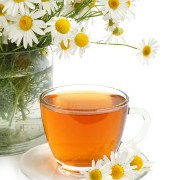 Photo: Getty Images
Photo: Getty Images
Cancer patients are urged to discuss all supplements with doctors before beginning treatment.
Cancer patients undergoing chemotherapy treatments should tell their doctors if they are using herbal supplements as they may negatively impact their treatment, according to a new report.
Northwestern Memorial hospital researchers in Chicago say there is growing evidence that popular supplements such as acai berry, cumin, herbal tea, turmeric and long use of garlic may intensify or weaken the effect of chemotherapy drugs and in some cases, cause a toxic, even lethal reaction.
“With the growth of the Internet, patients have better access to information about alternative products and often turn to dietary and herbal supplements to treat their illness because they think they’re natural and safe,” June M. McKoy, MD, geriatric oncology director at the Robert H. Lurie Comprehensive Cancer Center at Northwestern University said in a written statement. “What people don’t realize is that supplements are more than just vitamins and can counteract medical therapies if not taken appropriately.”
McCoy is lead investigator for the report previously published in the journal Clinical Oncology. She presented the findings at the recent American Society of Clinical Oncology (ASCO) meeting in Chicago.
McKoy believes more research is needed to understand which supplements interact with chemotherapy drugs and to what extent. Her advice to cancer patients is stop taking herbal supplements while receiving chemotherapy until more is known about possible interactions. She however encouraged those who are interested in complementary approaches to talk with their doctor about other approaches that may be beneficial.
Patients need to be open and honest with their doctors about what medications they are taking, including vitamins and herbal supplements, to avoid any possible reaction, she said.
To prevent any negative interactions with their cancer treatment, McKoy said it's a good idea for patients to bring to their appointments the labels and bottles of any supplements they are taking. "This can help the doctor calibrate drug dosage with other supplements in mind to prevent toxicities,” she said.
Herbal supplements are defined as plant or plant parts used for therapeutic purposes and are sometimes called botanicals can have drug-like affects that can be dangerous for some people, according to the Mayo Clinic.
Herbal supplements can interact with chemotherapy drugs through different mechanisms. Some herbs can interfere with the metabolism of the drugs, making them less effective while other herbs such as long-term use of garlic may increase the risk of bleeding during surgery.
While culinary herbs used in small quantities for flavoring are generally safe, consuming large amounts for prolonged periods of time may have a negative effect on the body when going through chemotherapy, according to the report.
Recent research shows that 50 percent of patients undergoing chemotherapy did not tell their doctor they were taking alternative therapies. “Some believe it’s not important, while others are uncomfortable admitting they are pursuing alternative therapies,” McKoy said. “The truth is, integrative approaches can be beneficial for cancer patients, but it’s important to take these approaches at the right time and under the supervision of your doctor.”
Complementary medicine is increasingly being used by hospitals around the country to treat “the whole person” undergoing cancer treatment. Melinda Ring, MD, medical director for Integrative Medicine and Wellness at Northwestern Memorial, said integrative therapies such as massage, acupuncture and meditation can address important patient needs by alleviating stress, addressing pain and helping patients cope.
Lynette Summerill, an award-winning writer and scuba enthusiast, lives in San Diego, CA. In addition to writing about cancer-related issues for EmpowHER, her work has been seen in newspapers and magazines around the world.
News Release. Popular Herbal Supplements May Adversely Affect Chemotherapy Treatment. Northwestern Memorial News. 13 July 2011. Angela Salemo.Accessed online:
http://www.nmh.org/cs/Satellite?c=eHA_Content_C&cid=1244689676997&pagename=nm%2FCentral_Template
Herbal Supplements: What to know before you buy. Mayo Clinic. Accessed online 17 Aug 2011.Online at:
http://www.mayoclinic.com/health/herbal-supplements/SA00044
American Society of Clinical Oncology. Report presentation 2011 Annual Meeting. Herbal Supplements: Boon or bain for older cancer Patients? J. M. Mckoy, A. S. Haleem, D. B. Liebling; Division of Geriatric Medicine & Robert H. Lurie Comprehensive Cancer Northwestern University Feinberg School of Medicine, Chicago, IL; Loyola University, Chicago, IL Abstract at:
http://www.asco.org/ASCOv2/Meetings/Abstracts?&vmview=abst_detail_view&confID=102&abstractID=84814
Reviewed August 19, 2011
by Michele Blacksberg R.N.
Edited by Jody Smith





Add a CommentComments
There are no comments yet. Be the first one and get the conversation started!